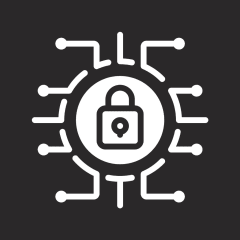While both psychiatrists and psychologists work in the field of mental health, there are significant differences in their training, education, and scope of practice.
- Psychiatrists are medical doctors who specialize in the diagnosis and treatment of mental health disorders. They have completed medical school and a residency in psychiatry, which includes training in both medical and psychological aspects of mental illness. Psychiatrists can prescribe medication to treat mental health conditions and may also provide therapy to patients. They often work with patients who have complex mental health needs, such as severe depression, bipolar disorder, or schizophrenia.
- Psychologists, on the other hand, have a Doctoral Degree in Psychology and specialize in the study of human behavior and mental processes. They are trained in psychological assessment and therapy, but are not licensed to prescribe medication. Psychologists may work with patients to address a wide range of mental health concerns, such as anxiety, depression, or relationship issues. They often provide therapy to individuals, couples, or families and may also conduct research or work in academic or research settings.
While both psychiatrists and psychologists may provide therapy to patients, psychiatrists are more likely to focus on medical management of mental health conditions, while psychologists focus on psychotherapy and counseling. In general, psychiatrists are more likely to work with patients who have complex or severe mental health conditions, while psychologists may work with patients who have a broader range of mental health concerns.
Overall, the differences between psychiatrists and psychologists reflect their different training and education, as well as the unique roles they play in the field of mental health. Both professions are important for providing comprehensive care to patients with mental health conditions.
Related Careers

Incident Responder
An incident responder is a cyber security professional responsible for identifying, investigating, and mitigating security incidents within an organization.

Cryptanalyst
A cryptanalyst is a specialist in the field of cryptography who focuses on analyzing cryptographic systems and breaking codes to decipher encrypted information.

CISO
A Chief Information Security Officer (CISO) is a senior executive responsible for managing and overseeing an organization's information security program.

Security Software Developer
A security software developer is responsible for designing and developing software applications with a strong focus on security.

Cryptographer
A cryptographer specializes in the field of cryptography, which involves the study and practice of secure communication and data protection.

Security Architect
A security architect is a cybersecurity professional responsible for designing and implementing secure systems, networks, and applications to protect an organization's digital assets from cyber threats and attacks.

Penetration Tester
A penetration tester evaluates the security of computer systems, networks, and applications by simulating real-world attacks.

Information Security Director
An information security director is responsible for leading and overseeing the information security function within an organization.

Digital Forensics Analyst
Digital forensics analysts investigate and analyze digital evidence to uncover information related to cybercrime, data breaches, or other digital incidents.

Red Teamer
A red teamer specializes in conducting adversarial simulations and assessments of an organization's security measures, with the goal of identifying vulnerabilities and weaknesses.

Blue Teamer
Blue teamers are cybersecurity professionals who specialize in defensive security measures and strategies.

SOC Manager
A Security Operations Center (SOC) manager is responsible for overseeing the day-to-day operations and strategic direction of a SOC.

Security Engineer
A security engineer is responsible for safeguarding an organization's information technology infrastructure and data from potential threats, vulnerabilities, and cyberattacks.

Ethical Hacker
An ethical hacker is a cybersecurity professional who is hired by an organization to identify and fix vulnerabilities in their computer systems, networks, and applications.

Information Security Analyst
An information security analyst is responsible for safeguarding an organization's computer systems and networks against cyber threats and unauthorized access.

Cybercrime Investigator
A cybercrime investigator is responsible for investigating and combating cybercrimes.

Information Security Manager
An information security manager is responsible for overseeing and managing the information security program within an organization.

IT Security Consultant
An IT security consultant provides expert advice and guidance on information technology security matters to organizations.

